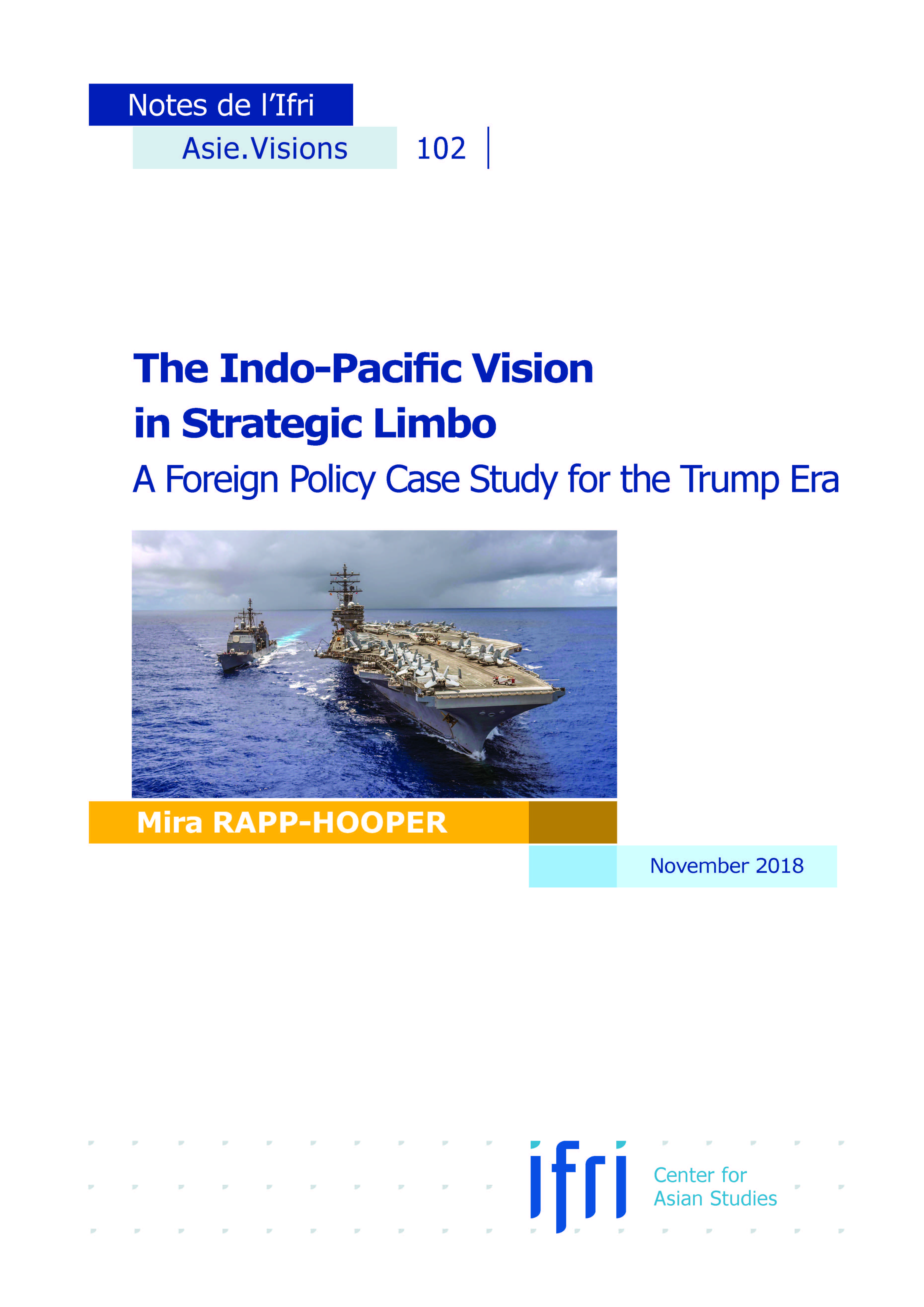The Indo-Pacific Vision in Strategic Limbo: A Foreign Policy Case Study for the Trump Era

The Trump Administration’s Indo-Pacific security strategy is a case study in foreign policymaking under a non-unitary executive.
Having identified competition with China as a leading national security priority in its early months, disposed of the Obama Administration’s Rebalance to Asia, and begun the process of defining its ‘free and open Indo-Pacific’ approach, the administration has made little subsequent progress towards developing it into a concrete strategy. While some modest efforts have been made to develop policy at the working level, the President himself has pursued a much narrower China approach, focused almost exclusively on punitive trade measures and North Korea. Moreover, the basic principles that motivate Indo-Pacific concept are clearly at odds with the President’s own instincts. As a result, two largely independent streams of China policy have emerged and are highly unlikely to be rationalized in the next two years.
This current disjuncture does not, however, doom the Indo-Pacific security strategy to history’s dustbin. Whether or not the moniker persists, the basic contours of the approach are likely to be adopted by a new administration and are largely consistent with broader U.S. objectives in the region. Far beyond the White House, a consensus has emerged in Washington that the United States and China will be increasingly competitive, and that a holistic American strategy is necessary. Any future strategy is likely to rely on allies and partners, emphasize democracies, seek to secure the First Island Chain and maritime Asia, and have ample room for participation by European partners. There will, however, remain many hurdles to full and successful implementation, including perennial American over-optimism about regional states’ alignment decisions and ability to commit resources, as well as the profound distrust that is likely to enshroud U.S. strategic leadership after Trump. Nonetheless, American allies and partners may think of the Indo-Pacific approach as one whose time is still likely to come; they should seek to develop it themselves until the United States is capable of resuming some form of regional leadership.
Download the full analysis
This page contains only a summary of our work. If you would like to have access to all the information from our research on the subject, you can download the full version in PDF format.
The Indo-Pacific Vision in Strategic Limbo: A Foreign Policy Case Study for the Trump Era
Related centers and programs
Discover our other research centers and programsFind out more
Discover all our analyses
Opening up the G7 to South Korea to Address Contemporary Global Challenges
The G7’s global influence has diminished as powers like China reshape international governance through initiatives such as BRICS and the Shanghai Cooperation Organisation (SCO). With the G7 now representing just 10 per cent of the world’s population and 28 per cent of global GDP, its relevance is increasingly questioned.
Expanding SPDMM as a pivotal institution in the Pacific – A French perspective
The South Pacific Defence Ministers’ Meeting (SPDMM) is the only forum that brings together defense ministers from the wider South Pacific — including Chile, which is hosting it for the first time. This heterogeneous group of countries with varying resources, capacities, and interests — Australia, Chile, Fiji, France, New Zealand, Papua New Guinea (PNG), and Tonga — are united by their shared determination to strengthen cooperation on maritime security and humanitarian assistance and disaster relief (HADR) activities.
EU’s Derisking From China: A Daunting Task
With economic security as a major concern, the EU has recently turned to “derisking” from China. The EU strategy entails reducing critical dependencies and vulnerabilities, including in EU supply chains, and diversifying where necessary, while recognizing the importance and need to maintain open channels of communication.
Sri Lanka’s NPP Government. From System Change to Structural Compliance
In September 2024, a relative outsider to Sri Lanka’s two-party-dominated political system, Anura Kumara Dissanayake, won the presidential elections. The anti-establishment, populist movement he represented, the National People’s Power (NPP), went on to receive an overwhelming mandate in the November 2024 general elections, winning 159 seats in a 225-member parliament.










